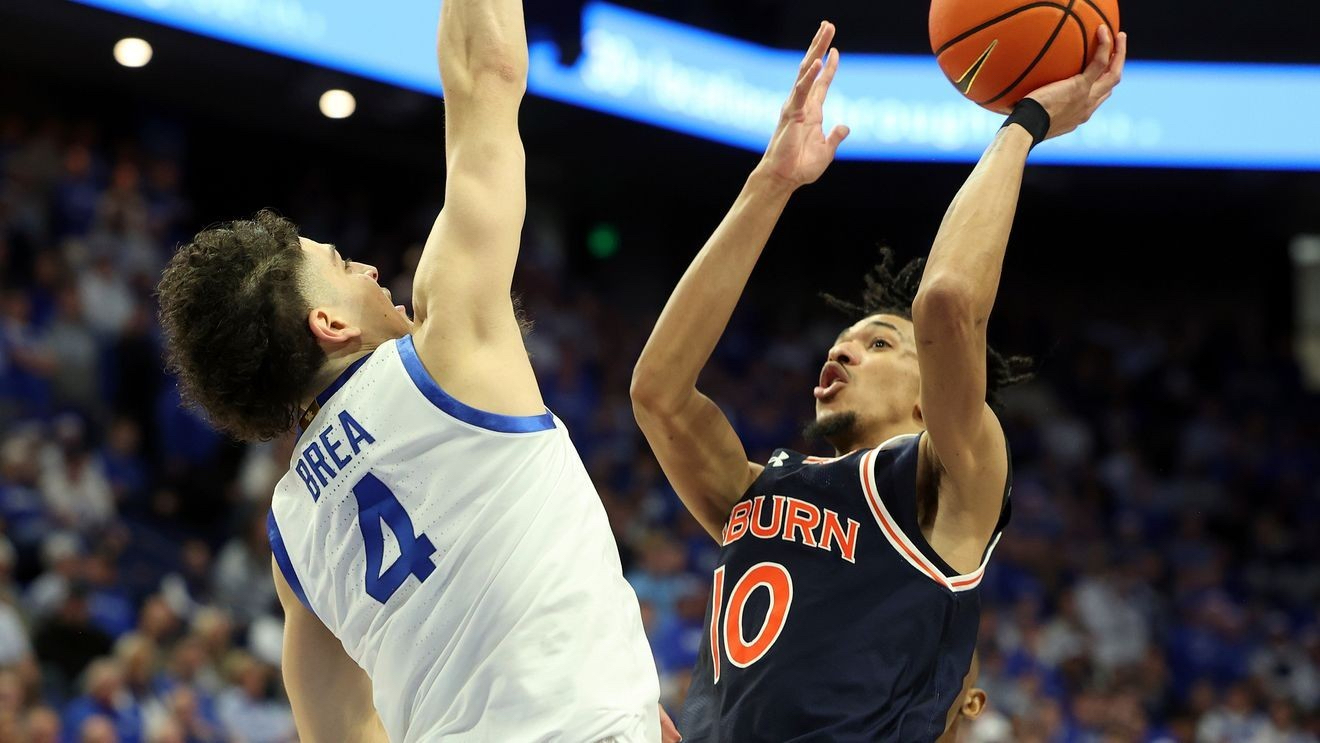
How Brea and Baker-Mazara Are Changing the Game
The hardwood courts of March Madness have never been a monolith, but the increasing presence of Latino players represents a profound shift in collegiate basketball’s cultural landscape. Beyond just participation, these athletes are redefining what excellence looks like in a tournament historically dominated by different demographics. “The basketball court doesn’t ask where you’re from,” explains Kentucky’s Dominican-American sharpshooter Koby Brea. “It only asks what you can do with the ball when the lights are brightest.”
Brea’s journey to Kentucky epitomizes the complex pathways Latino players navigate to reach college basketball’s elite stages. After transferring from Dayton, where he shot an astounding 49.8% from three-point range, Brea brought his perimeter threat to the Wildcats, dramatically expanding their offensive arsenal. “When I’m on the court, I’m not just representing myself or Kentucky,” Brea told reporters after a crucial tournament win. “I’m representing my family, my culture, and all the kids back in the Dominican Republic who dream of being here someday.”

The tournament’s economic implications extend far beyond bracket pools and television rights. For players like Brea and Baker-Mazara, March success translates to increased visibility, potential professional opportunities, and expanded platforms for cultural representation. NCAA analyst Maria Rodriguez notes, “These aren’t just basketball stories—they’re economic mobility narratives playing out on national television, showing Latino communities that pathways exist in spaces where they’ve been historically underrepresented.”
Auburn’s Chad Baker-Mazara brings a different, equally compelling dimension to March Madness. The Dominican-born forward’s explosive scoring ability and emotional intensity have made him both a fan favorite and occasional lightning rod. “I play with my heart on my sleeve because that’s how we play where I’m from,” Baker-Mazara explained after a particularly passionate performance. “Basketball isn’t just a game—it’s an expression of who we are.”

Koby Brea.
Photo by Eddie Justice
Social media has amplified these players’ impact beyond the court. After Baker-Mazara’s spectacular 25-point performance against Tennessee, NBA star Karl-Anthony Towns tweeted: “Dominican pride on full display! @ChadBakerMazara showing the world what we’re capable of on the biggest stage. Keep shining brother! 🇩🇴 #MarchMadness”
The tournament’s evolving demographics reflect broader shifts in basketball’s international development. Countries like the Dominican Republic, Puerto Rico, and Mexico have strengthened their basketball infrastructure, producing more college-ready talent. “Ten years ago, these pipelines barely existed,” explains former coach and current basketball development specialist Carlos Mendoza. “Now we’re seeing the fruits of intentional investment in Latino basketball talent, and March Madness is becoming richer for it.”
“Every shot I take connects two worlds,” Brea reflected after a practice session. “The form I learned back home, the opportunities I’ve found here—it all comes together when the ball leaves my hands.”
For Kentucky’s Brea, the three-point shot has become both athletic weapon and cultural metaphor—a long-distance connection between his Dominican roots and his American basketball present. His shooting mechanics, developed on courts in the Dominican Republic and perfected in American gyms, represent a transcultural basketball fluency. “Every shot I take connects two worlds,” Brea reflected after a practice session. “The form I learned back home, the opportunities I’ve found here—it all comes together when the ball leaves my hands.”

Baker-Mazara’s Auburn journey reflects resilience beyond mere athletic achievement. After transferring multiple times, the forward found his basketball home with the Tigers, where coach Bruce Pearl has embraced his passionate playing style. “Chad brings a cultural perspective to our locker room that makes everyone better,” Pearl noted after a critical tournament victory. “His experience, his background, his approach to the game—it’s different, and that difference makes us stronger collectively.”
“Sometimes I feel that pressure,” admits Baker-Mazara when asked about being a Latino standard-bearer. “But mostly I feel pride. Every time I step on the court, I’m opening doors for the next generation of Latino players who might be watching.”
The visibility of Latino players in March Madness carries implications beyond basketball. Television ratings in Spanish-speaking markets have surged, cultural commentators have noted increased engagement, and younger Latino athletes increasingly see collegiate basketball as a viable path. “When I was growing up, we didn’t see many players who looked like us in March Madness,” explained former collegiate player and current youth coach Eduardo Ramirez. “Now my players can watch Brea and Baker-Mazara and see themselves in the tournament. That representation matters profoundly.”

As the tournament progresses, both Brea and Baker-Mazara carry dual burdens—their teams’ championship aspirations and the less tangible but equally significant weight of cultural representation. “Sometimes I feel that pressure,” admits Baker-Mazara when asked about being a Latino standard-bearer. “But mostly I feel pride. Every time I step on the court, I’m opening doors for the next generation of Latino players who might be watching.”
For both players, the 2025 NCAA Tournament represents not just a basketball competition but a cultural inflection point—a moment where their personal journeys intersect with broader narratives about representation, opportunity, and excellence in American athletic institutions. As Brea put it after advancing deep into the tournament: “The beautiful thing about basketball is that it’s always evolving, always making room for new stories. I’m just grateful that my story, our stories, are now part of March Madness history.”


Must See
-


Other Sports
/ 8 years agoFloyd Mayweather says fight against Conor McGregor can happen
Nemo enim ipsam voluptatem quia voluptas sit aspernatur aut odit aut fugit, sed quia...
By Phil Colon -


Other Sports
/ 8 years agoSerena sets Open era record with 23rd Slam
Temporibus autem quibusdam et aut officiis debitis aut rerum necessitatibus saepe eveniet ut et...
By Phil Colon






